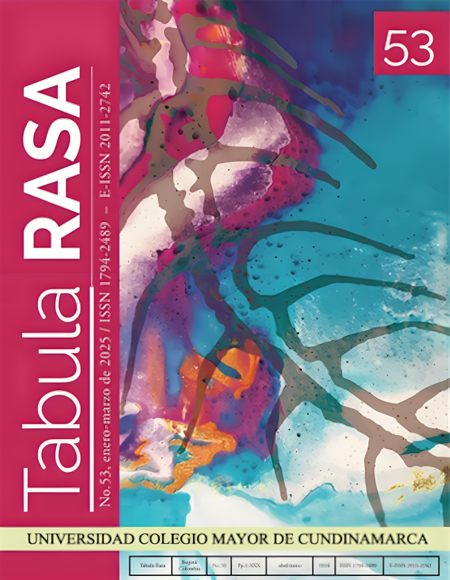Depatriarchalizing Knowledge Constructs: Thinking Social Intervention in the Light of Intersectionality
Despatriarcalizando la construcción de conocimientos: la intervención social pensada desde la interseccionalidad
Show authors biography
This theoretical research work will critically examine hegemonic theoretical constructs, on the understanding that they have historically excluded women and other subalternized groups, thus casting out the so-called “female” features from epistemic communities. We will argue that sexism in social theories and interventions has persisted to this day. This is why, it is of paramount importance to undertake a deconstruction of this oppressive, unequal, hierarchized relational system between sexes, setting women aside in a subalternized position. This article aims to support the idea that social intervention should be thought from an intersectional feminism committed and critical of the prevailing social order in order to deconstruct wisdoms and social interventions cemented in patriarchal androcentric rationales. That way, we will ask ourselves how social workers may produce interventions that recover and promote “feminine” knowledge —and of subalternized masculinities. Lastly, we will present the challenges of doing intersectional social work
Article visits 110 | PDF visits 77
Downloads
- Danel, P. (2020). Habitar la incomodidad desde las intervenciones del trabajo social. Escenarios 31, 1-13. https://revistas.unlp.edu.ar/escenarios/article/view/10042
- Gandarias, I. (2017). ¿Un neologismo a la moda?: Repensar la interseccionalidad como herramienta para la articulación política feminista. Investigaciones Feministas, 8(1), 73-93. https://doi.org/10.5209/INFE.54498
- González, A. (2016). Ideología e intervención social. Un aporte desde la lectura de Zizek y Lacan. En: A. M. Contreras (ed.). Las desigualdades como campo de investigación en trabajo social(pp. 69-80).
- Espacio. Hooks, b. (2004). The will to change: men, masculinity, and love. Atria Books.
- Molleda, E. (2007). ¿Por qué decimos que «no podemos hacer intervención social»? Cuadernos de Trabajo Social 20, 139- 155. https://revistas.ucm.es/index.php/CUTS/ article/view/CUTS0707110139A
- Moreno, M. & Molina. N. (2018). La intervención social como objeto de estudio: discursos, prácticas, problematizaciones y propuestas. Athenea Digital, 18(3), 1-29. https://atheneadigital.net/article/view/v18-n3-moreno-molina
- Muñoz, G. (2018). Epistemologías críticas e intervención social. En: M. Flotts & B. Castro (Eds.) Imaginarios de transformación: el trabajo social revisitado (pp. 137– 160). RIL
- Muñoz, G. (2020a). Teorías críticas, tiempos críticos y la tradición intelectual del trabajo social bajo un estado de «emergencia». Escenarios, 31, 1-13. https://revistas.unlp.edu.ar/escenarios/article/view/10039
- Muñoz, G. (2020b). Trabajo interprofesional en Chile: impactos de la racionalidad neoliberal y los horizontes de la justicia social. Rumbos TS, 15(21), 87-108. https://doi.org/10.51188/rrts.num21.394
- Ortega, M. B. (2015). Trabajo social como transdisciplina: hacia una teoría de la intervención. Cinta de Moebio, 54, 278-289. http://dx.doi.org/10.4067/S0717-554X2015000300005
- Prieto Solano, C. & Romero Cubillos, M. (2009). Una opción para leer la intervención del trabajo social. Revista Tendencias & Retos, 14, 71-100.
- Zunino, E. & Guzzetti, L. (2018). La intervención social en clave feminista. Aportes de las teorías feministas para la intervención en lo social. Debate Público, 8(15-16), 49- 57. https://publicaciones.sociales.uba.ar/index.php/debatepublico/article/view/8495








